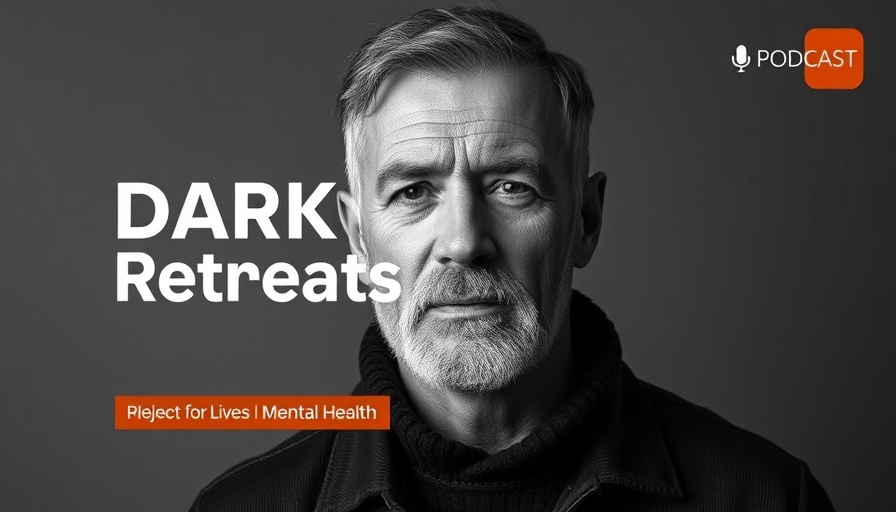
Understanding the Weight of Anxiety: A Personal Journey
Anxiety is a multifaceted issue that affects countless individuals across various demographics, often silently dictating their daily lives. For many, the journey begins with what may seem like a benign worry but quickly escalates to the point where everyday situations become overwhelming. This article explores the transitions from mere stress to experiencing full-blown anxiety disorders, emphasizing the importance of letting go.
Defining Anxiety Disorders: What Are They?
Anxiety disorders encompass a range of conditions, including generalized anxiety disorder (GAD), social anxiety disorder, panic attacks, and various phobias. Many individuals, especially youths and professionals, experience symptoms uniquely tailored to their life circumstances. For instance, students may suffer from test anxiety, while working professionals often grapple with workplace anxiety—provoked by fears related to job security and performance.
The Role of Stigma in Mental Health
Despite increased advocacy for mental health awareness, many still face societal stigma that discourages them from seeking help. Here, one must acknowledge the role of cultural considerations that can impact how mental health is perceived and treated within different communities. The stigma surrounding anxiety can deter individuals from reaching out for help or participating in support groups, leading to further isolation and mental strain.
Empowering Through Education: Knowledge as a Tool
Knowledge about mental health—specifically related to anxiety—must be prioritized in educational programs. Understanding symptoms, effective coping strategies, and available resources fosters resilience. Educational institutions should implement school-based programs that equip students with skills in stress management, relaxation techniques, and emotional intelligence.
Exploring Therapeutic Options: From Medication to Mindfulness
When it comes to managing anxiety, treatment options can be diverse. Cognitive behavioral therapy (CBT) has been proven effective in addressing the roots of anxiety. Additionally, holistic approaches such as mindfulness, meditation, and even art therapy provide necessary outlets for expressing and confronting anxiety. For those grappling with severe symptoms, medication—while often stigmatized—can offer relief, making it crucial to educate the public on its role and importance in mental health therapies.
Community Outreach: The Importance of Support
Community outreach initiatives, including helplines like SADAG and local support groups, offer vital assistance for those in need. Not only do they serve as safe spaces for individuals to share experiences, but they also provide empowerment through shared understanding and resources. Initiatives must focus on reducing barriers to accessibility, especially within marginalized communities.
Stress Management Techniques: Breathing Techniques and Beyond
Techniques such as controlled breathing exercises, yoga for anxiety, and simple lifestyle adjustments can significantly alleviate stress levels for those experiencing anxiety. Incorporating physical exercise and establishing a healthy sleep hygiene routine further contribute to one's overall mental wellbeing. Nutrition, too, plays an essential role, as studies indicate that what we consume can influence our thoughts and emotional state.
The Healing Power of Connection: Family and Peer Support
Addressing anxiety does not mean navigating the waters alone. Family therapy can serve as an impactful avenue for healing, facilitating open communication and understanding within a family unit. Engaging in peer support groups promotes camaraderie among individuals facing similar struggles, providing them with a platform to share tips and strategies that have worked for them.
Conclusion: A Call to Action for Mental Health Awareness
The conversation surrounding anxiety, mental health, and wellness needs to become a priority across all sectors of society. Advocacy for public awareness campaigns and mental health legislation is essential to protect patients’ rights and ensure equitable access to treatment for all, particularly during crises like COVID-19 as economic stress mounts. Let us continue to educate ourselves, reduce stigma, and foster an environment where individuals feel empowered to seek help and embrace their mental health journeys.
 Add Row
Add Row  Add
Add 




Write A Comment